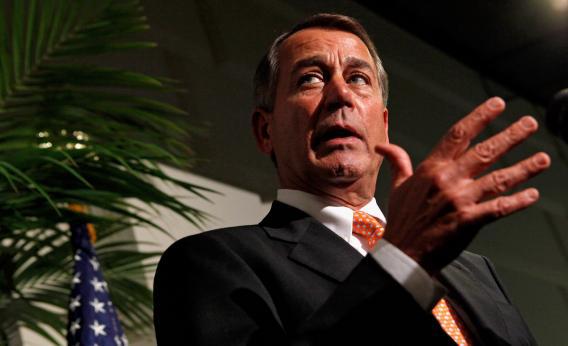If you want to know why congress’s approval ratings keep hitting new lows, look no further than the latest wrangling over the payroll tax. Senate Republican leaders reached a deal over the weekend with the White House and Senate Democrats to do a two-month extension and then leave town, creating extra time to negotiate some of the longer-term issues. Then yesterday the House Republican leadership announced that it was going to double-cross its Seate counterparts and reject the deal. The Senate’s line is that they’re out of session now and there’s nothing more to negotiate about. But the House leadership says it has the votes to kill the Senate deal today, pass a conservative alternative, and then set the stage for a conference committee.
This makes House Republicans look ridiculous, but as with their ridiculous behavior over the debt ceiling they may get results. The main issue here is that evidence suggests that anything that happens to ridiculous real personal disposable income next year will hurt the president’s re-election chances. It doesn’t matter what the source of the reduction is (falling nominal income, increasing taxes, higher gasoline prices) or whose fault the reduction is or what anyone can do about it. Voters hold the incumbent responsible for events, so if bad events happen the president will suffer. This combined with their willingness to undertake considerable public criticism and opprobrium has given House Republicans the upper hand in a series of high-stakes standoffs with the White House. What’s more, the White House’s willingness to compromise at various times has given them a credibility problem. Republicans have some theoretical and empirical backing for the view that if they hold firm, they can get a better deal at the last minute. But the key to this strategy is that you have to be willing to undertake a lot of public criticism and awkward situations. You have to not think too hard about that 11 percent approval rating and all the rest. So far, they’re sticking to their guns.
